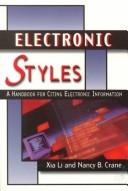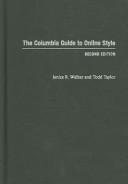| Listing 1 - 10 of 43 | << page >> |
Sort by
|
Book

ISBN: 2848676809 Year: 2019 Publisher: Besançon : Presses universitaires de Franche-Comté,
Abstract | Keywords | Export | Availability | Bookmark
 Loading...
Loading...Choose an application
- Reference Manager
- EndNote
- RefWorks (Direct export to RefWorks)
Cet ouvrage propose une réflexion sur la place de l’Antiquité dans les arts, analysant les lectures, les réécritures, les projections dont la littérature et la mythologie gréco-romaines font l’objet ; les travaux présentés intéressent différentes formes d’art : théâtre, opéra, peinture ou encore cinéma ; les exposés, émanant de la recherche universitaire ou issus d’expériences pédagogiques, se complètent et se répondent en un dialogue fécond. Ces contributions sont le fruit des rencontres organisées à Besançon dans le cadre des Journées d’automne de la Coordination nationale des associations régionales d’enseignants de langues anciennes sur le thème « Arts et Antiquité ». Elles s’inscrivent dans le contexte de l’introduction de l’histoire des arts dans les programmes scolaires.
Art --- Antiquité --- art --- mythologie --- réécriture --- littérature --- théâtre --- opéra --- peinture --- citation
Book
Year: 2013 Publisher: Berlin : De Gruyter,
Abstract | Keywords | Export | Availability | Bookmark
 Loading...
Loading...Choose an application
- Reference Manager
- EndNote
- RefWorks (Direct export to RefWorks)
Law --- Citation of legal authorities --- Abbreviations, German. --- Abbreviations.
Book
ISBN: 0309267293 9780309267298 9780309267281 0309267285 9780309267311 0309267315 Year: 2012 Publisher: Washington, District of Columbia : The National Academies Press,
Abstract | Keywords | Export | Availability | Bookmark
 Loading...
Loading...Choose an application
- Reference Manager
- EndNote
- RefWorks (Direct export to RefWorks)
"The growth of electronic publishing of literature has created new challenges, such as the need for mechanisms for citing online references in ways that can assure discoverability and retrieval for many years into the future. The growth in online datasets presents related, yet more complex challenges. It depends upon the ability to reliably identify, locate, access, interpret, and verify the version, integrity, and provenance of digital datasets. Data citation standards and good practices can form the basis for increased incentives, recognition, and rewards for scientific data activities that in many cases are currently lacking in many fields of research. The rapidly-expanding universe of online digital data holds the promise of allowing peer-examination and review of conclusions or analysis based on experimental or observational data, the integration of data into new forms of scholarly publishing, and the ability for subsequent users to make new and unforeseen uses and analyses of the same data-either in isolation, or in combination with, other data sets. The problem of citing online data is complicated by the lack of established practices for referring to portions or subsets of data. There are a number of initiatives in different organizations, countries, and disciplines already underway. An important set of technical and policy approaches have already been launched by the U.S. National Information Standards Organization (NISO) and other standards bodies regarding persistent identifiers and online linking. The workshop summarized in For Attribution -- Developing Data Attribution and Citation Practices and Standards: Summary of an International Workshop was organized by a steering committee under the National Research Council's (NRC's) Board on Research Data and Information, in collaboration with an international CODATA-ICSTI Task Group on Data Citation Standards and Practices. The purpose of the symposium was to examine a number of key issues related to data identification, attribution, citation, and linking to help coordinate activities in this area internationally, and to promote common practices and standards in the scientific community."--Publisher's description.

ISBN: 1573879681 9781573879682 1573870277 9781573870276 Year: 1996 Publisher: Medford, N.J. : Information Today,
Abstract | Keywords | Export | Availability | Bookmark
 Loading...
Loading...Choose an application
- Reference Manager
- EndNote
- RefWorks (Direct export to RefWorks)
Citation of electronic information resources. --- Databases, Bibliographic --- Citation of electronic information resources --- Languages & Literatures --- Literature - General --- Citation of electronic information sources --- Bibliographical citations --- Electronic information resources --- Bibliographic Database --- Bibliographic Databases --- Database, Bibliographic --- Databases, Bibliographic.
Book
ISBN: 1936117479 9781936117475 9781936117147 1936117142 Year: 2010 Publisher: Duluth, MN : Litwin Books,
Abstract | Keywords | Export | Availability | Bookmark
 Loading...
Loading...Choose an application
- Reference Manager
- EndNote
- RefWorks (Direct export to RefWorks)
Citation of electronic information resources --- Bibliographical citations. --- Bibliographical references --- Citation of sources --- Citations, Bibliographical --- Footnotes, Bibliographical --- References, Bibliographical --- Bibliography --- Citation of electronic information sources --- Bibliographical citations --- Electronic information resources --- Evaluation. --- Methodology

ISBN: 0231506988 0231132107 0231132115 9780231506984 9780231132107 9780231132114 Year: 2006 Publisher: New York : Columbia University Press,
Abstract | Keywords | Export | Availability | Bookmark
 Loading...
Loading...Choose an application
- Reference Manager
- EndNote
- RefWorks (Direct export to RefWorks)
The Columbia Guide to Online Style is the standard resource for citing electronic and electronically accessed sources. It is also a critical style guide for creating documents electronically for submission for print or electronic publication. Updated and expanded, this guide now explains how to cite technologies such as Web logs and pod casts; provides more guidance on translating the elements of Columbia Online Style (COS) citations for use with existing print-based formats (such as MLA, APA, and Chicago); and features additional guidelines for producing online and print documents based on new standards of markup language and publication technologies. This edition also includes new bibliographic styles for humanities and scientific projects; examples of footnotes and endnotes for Chicago-style papers; greater detail regarding in-text and parenthetic reference and footnote styles; an added chapter on how to locate and evaluate sources for research in the electronic age; and new examples for citing full-text or full-image articles from online library databases, along with information on how to credit the source of graphics and multimedia files. Staying ahead of rapidly evolving technologies, The Columbia Guide to Online Style continues to be a vital tool for online researchers.
LANGUAGE ARTS & DISCIPLINES --- Authorship --- Citation of electronic information resources --- Languages & Literatures --- Literature - General --- Data processing --- Citation of electronic information resources. --- Art d'écrire --- Information électronique --- Data processing. --- Handbooks, manuals, etc. --- Informatique --- Guides, manuels, etc --- Citation --- Citation of electronic information sources --- Authoring (Authorship) --- Writing (Authorship) --- Bibliographical citations --- Electronic information resources --- Literature
Book
Year: 2022 Publisher: Milan FrancoAngeli
Abstract | Keywords | Export | Availability | Bookmark
 Loading...
Loading...Choose an application
- Reference Manager
- EndNote
- RefWorks (Direct export to RefWorks)
According to Sartori, “Language is the sine-qua-non instrument of knowing”. Nevertheless, social sciences often adopt terms lacking clear and precise definitions. Adopting the method proposed in Sartori (1984), the present Master’s thesis consists of an explicatory study aiming to clarify the concept of “elites”. First, the essential works concerning elites are identified by analyzing a large citation network. Then, the thesis proposes a definition of elite able to encompass those of previous works. The new definition attempts to include the concept of elites within the broader framework of the resource-dependence theories (Pfeffer e Salancik, 1978) and purposive theories (Coleman, 2005).
criteria for good conceptual definitions --- citation network --- elite --- information retrieval --- review methods --- concept reconstruction
Book
ISBN: 1283070154 9786613070159 0252093186 9780252035999 0252035992 9780252093180 0252078853 9781283070157 6613070157 Year: 2011 Publisher: Urbana : University of Illinois Press,
Abstract | Keywords | Export | Availability | Bookmark
 Loading...
Loading...Choose an application
- Reference Manager
- EndNote
- RefWorks (Direct export to RefWorks)
Matt Carlson confronts the promise and perils of unnamed sources in this exhaustive analysis of controversial episodes in American journalism during the George W. Bush administration, from prewar reporting mistakes at the New York Times and Washington Post to the Valerie Plame leak case and Dan Rather's lawsuit against CBS News.
Journalistic ethics --- Journalism --- Reporters and reporting --- Attribution of news. --- Authority in the news, Citation of --- Citation of authority in the news --- News, Attribution of --- News source identification --- Sources, News --- Confidential communications --- Political aspects --- Press
Book
ISBN: 0081002777 0081002734 9780081002773 9780081002735 Year: 2016 Publisher: Waltham, MA : Chandos Publishing,
Abstract | Keywords | Export | Availability | Bookmark
 Loading...
Loading...Choose an application
- Reference Manager
- EndNote
- RefWorks (Direct export to RefWorks)
The goal of any research assessment is to evaluate the value or quality of the research in comparison to other research. As quality is highly subjective and difficult to measure, citations are used as a proxy. Citations are an important part of scholarly communication and a significant component of research evaluation, with the assumption being that highly cited work has influenced the work of many other researchers and hence it is more valuable. Recently we have seen new online data sources being researched for this purpose and disruptive ideas with the power to change research assessment, and perhaps even science as a whole, have been born. Altmetrics is the new research area that investigates the potential of these new data source as indicators of the impact that research has made on the scientific community and beyond, and thus possibly also as indicators of the societal impact of research. This book will present some of these new data sources, findings from earlier altmetrics research, and the disruptive ideas that may radically change scholarly communication. Presents some of the key ideas and innovations in earlier research that have been driving the evolution from bibliometrics to webometrics, and with the advent of social media to altmetrics Discusses the shortcomings and pitfalls of bibliometrics in research evaluation and the potential of altmetrics to overcome some of these shortcomings Presents some of the most important data sources of altmetrics, the aggregators, and the different stakeholders Reviews current research about altmetrics and discusses possible future trends Presents a way to measure and aggregate altmetrics according to the level of impact or type of impact they represent
Bibliographical citations --- Evaluation. --- Bibliographical references --- Citation of sources --- Citations, Bibliographical --- Footnotes, Bibliographical --- References, Bibliographical --- Bibliography --- Methodology --- Bibliometrics.
Book
Year: 2019 Publisher: Frontiers Media SA
Abstract | Keywords | Export | Availability | Bookmark
 Loading...
Loading...Choose an application
- Reference Manager
- EndNote
- RefWorks (Direct export to RefWorks)
This eBook is a collection of articles from a Frontiers Research Topic. Frontiers Research Topics are very popular trademarks of the Frontiers Journals Series: they are collections of at least ten articles, all centered on a particular subject. With their unique mix of varied contributions from Original Research to Review Articles, Frontiers Research Topics unify the most influential researchers, the latest key findings and historical advances in a hot research area! Find out more on how to host your own Frontiers Research Topic or contribute to one as an author by contacting the Frontiers Editorial Office: frontiersin.org/about/contact
Data Mining --- text mining --- Semantic publishing --- Scientific papers --- Bibliometrics --- scientometrics --- Natural Language Processing --- computational linguistics --- Citation content analysis --- Academic search
| Listing 1 - 10 of 43 | << page >> |
Sort by
|

 Search
Search Feedback
Feedback About UniCat
About UniCat  Help
Help News
News